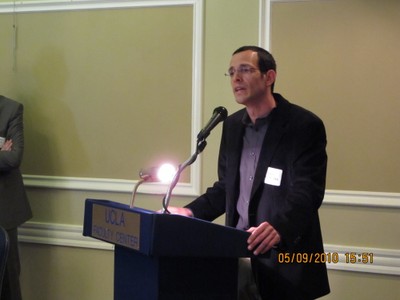Berg Fellowships
Each year the David Berg Institute hosts several visiting scholars, enabling them to conduct research at the Faculty of Law, as well as participate in a wide range of events and activities relating to their areas of interest.
Below is a list of the current and previous years' researchers
Geraldine Gudefin (2020-2021)
Geraldine Gudefin received her Ph.D. in History from Brandeis University in 2018. She is currently a Golda Meir postdoctoral fellow in the Department of Jewish History and Contemporary Jewry at the Hebrew University of Jerusalem. Her research interests include modern Jewish history; gender history; migration; legal pluralism; and the relationship between state and religion.
While at the Berg Institute, she will be working on two book manuscripts at the intersection of religion, gender, and migration. The first one (in French) focuses on the legal complications that East European Jewish immigrants in France experienced in the early 20th century, in particular the impossibility to obtain civil divorces; and the relationship between the civil and rabbinical legal systems. Through this case study, Dr. Gudefin sheds new light on the history of citizenship in France, and on the connection between immigration and the ideal of church/state separation: far from imposing laicite on non-naturalized immigrants, the French state prevented them from fully accessing civil institutions, such as divorce. Dr. Gudefin's second book (in English) explores the integration of East European Jewish newcomers into American legal institutions during the period of mass migration, with a focus on family life. She is particularly interested in the complex relationship between the immigrants themselves, native Jewish authorities, and the American state. Their oft-fraught interactions, she argues, transformed both American Jews and the American legal system, particularly family law.
Tamar Menashe (2019-2021)
Tamar Menashe is a doctoral candidate at Columbia University’s Department of History. After a visit to the Berg Institute in 2019, she will be returning for the academic year 2020-2021 to complete her doctoral thesis on Jews’ intensive pursuit of civil and religious rights before Germany’s Imperial Supreme Court in the context of the wide-ranging legal and religious reforms in the sixteenth and seventeenth centuries. This fall, she will also be finalizing an article project on attempts to criminalize central European Jewry in the context of the outbreak of syphilis at the end of the fifteenth century and the first decades of the sixteenth century.
Tamar’s research focuses on medieval and early modern European and Jewish history with particular attention to the intersections among law, religion, gender, society, and inter-faith relations. She holds a BA from the Hebrew University of Jerusalem in the School of History Honors Program, History of the Jewish People, and German Studies (summa cum laude), and MA and MPhil degrees from Columbia University.
Simon Rabinovitch (2018)
Simon Rabinovitch is an Assistant Professor of History at Boston University, where he teaches on a range of topics in Jewish, European, Russian, and legal history. He is the author of Jewish Rights, National Rites: Nationalism and Autonomy in Late Imperial and Revolutionary Russia and the editor of Jews and Diaspora Nationalism: Writings on Jewish Peoplehood in Europe and the United States.
In Religious Liberty and the Jews: Collective Rights in Modern States, I argue that the modernizing state’s preference for the individual right to religious liberty over the collective rights of the group has not led, as one might expect, to the dissolution of collective rights. So how do states and religious communities negotiate the conflicting rights of religious groups and individual citizens? To answer this question, I am researching the circuitous route different states have taken to integrate Jews as individuals and as a group into their legal frameworks, as well as how Jews have adapted to, or resisted, such pressure. The book is organized around five themes: religious liberty, religious identification, family law, religion in the public sphere, and communal representation. I am comparing cases in Europe, North America, Israel, Algeria, and South Africa where Jewish collective and individual rights have been at odds, and studying how different legal systems have resolved or managed them according to the norms of their legal culture. The examples in this book challenge the centrality of individual rights in the emergence of liberal democracies and capitalist economies, since the late eighteenth century until today, by pointing to the ways in which legal systems have preserved collective rights.
Jan Kober (2017)
Jan Kober works as a researcher at the Institute of State and Law (CAS) in Prague and also as a researcher of the GAUK-supported project at the Faculty of Law of the Charles University in Prague.
His current research project focuses on the historical development of law drafting procedures, especially codification procedures in connection with emergence of legal transplants.
Jan's research interests includes Legal history and History of legal thought, Property law, Law of Persons, Family law and Legal Philosophy. He is especially interested in the historical development of the law of fideicommissum, foundations and trusts, as well as in the historical development of ideas of codification and of the system of law.
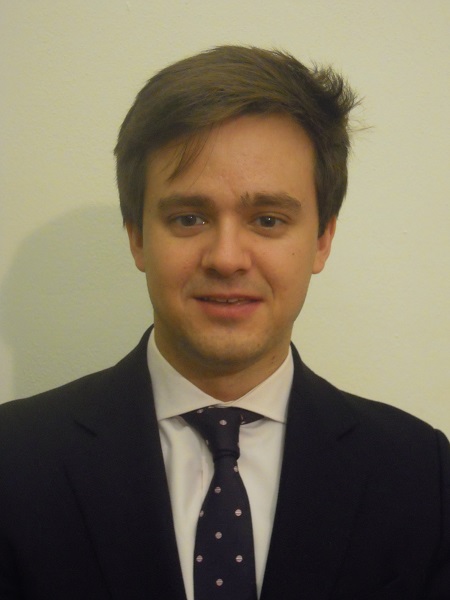 Dr. Fernando Hernández Fradejas (2017)
Dr. Fernando Hernández Fradejas (2017)
Currently a post-doctoral fellow in the Department of Criminal Law and History and Theory of Law, School of Law, University of Valladolid, Spain.
His current research project seeks to provide a historical approach to the deposit contract of fungible goods, focusing particular attention on irregular money deposits in Classical Antiquity. In addition, his research interests include: History and Theory of Money; Private Law Theory; Legal History and Theory; History of Political Thought and Political Theory; Political power and Law-making; Forms of Law-making; Legal Philosophy.
Dr. Fernando Hernández Fradejas holds an LLB from the Escorial-María Cristina Royal University Centre (Madrid, Spain), an MA in Economics from King Juan Carlos I University (Madrid, Spain) as well as a PhD from Bologna University (Italy).
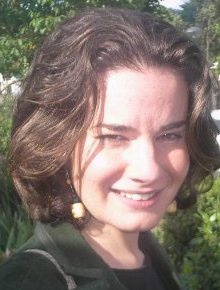 Prof. Silvia Schiavo (2017)
Prof. Silvia Schiavo (2017)
Prof. Schiavo is Associate Professor in the Department of Jurisprudence at the University of Ferrara, where she specializes in Roman law.
Her current research aims to reconstruct the relations between imperial constitutions (‘primary’ sources of law) and the edicts of the praetorian prefects (which could be defined as ‘secondary’ sources). The comparison with the imperial constitutions on the same topics shows that while some edicts seem just to apply rules already contained in previous constitutions, in other cases the prefect filled normative gaps left by the emperors. In several cases, constitutions of Justinian considered by scholars embrace solutions already implemented in the Eastern Prefecture through edicts.
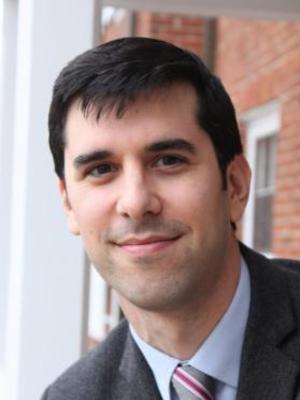 Prof. Alexander Kaye (2017)
Prof. Alexander Kaye (2017)
Alexander Kaye received his Ph.D. in History from Columbia University in 2012, after taking his bachelors and masters degrees at the University of Cambridge. He then served as the Tikvah Postdoctoral Fellow in Jewish Thought at Princeton University and is currently an Assistant Professor of History and the Saul and Sonia Schottenstein Chair of Israel Studies Designate at The Ohio State University.
Professor Kaye's research interests are in Jewish intellectual history and the study of Israel. His current research focuses on the legal philosophy of religious Zionists in the twentieth century, showing how they configured the relationship between state power and traditional Jewish law, often drawing on trends in European and American legal philosophy. His work contributes to the intellectual and cultural history of Judaism; explores the relationships among law, religion, and politics; and interrogates the distinction between the religious and the secular.
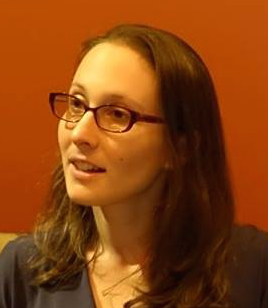 Rachel Friedman (2016-17)
Rachel Friedman (2016-17)
Rachel Friedman is a Ph.D. candidate in Harvard University’s Department of Government. She studies the history of political thought, theories of distributive justice and social policy. Her dissertation, which she is completing while a visiting scholar at the Berg Institute, explores the normative assumptions and distributive implications of social insurance from the idea's inception through the late-20th century. Dr. Friedman holds a B.A. from Harvard College and a J.D. from Harvard Law School.
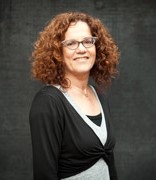 Dr. Rivka Brot (2016-17)
Dr. Rivka Brot (2016-17)
Currently a post-doctoral fellow at The Minerva Center for the Rule of Law under Extreme Conditions, Faculty of Law, Haifa University. Her research project titled Law and Order in the Chaos - Administration of Law in Jewish Displaced Persons Camps (Germany, Austria and Austria), 1945-1950.
Her dissertation, "Between Community and the State: Trials against Jewish Collaborators with the Nazis", was supervised by Prof. Leora Bilsky of the Faculty of Law, Tel Aviv University and Prof. David N. Myers, of the History department, UCLA.
She has published several articles in Hebrew and English relating to socio-legal aspects of the phenomenon of Jewish collaboration with the Nazis, both in Jewish Displaced Persons camps in Germany and in Israel.
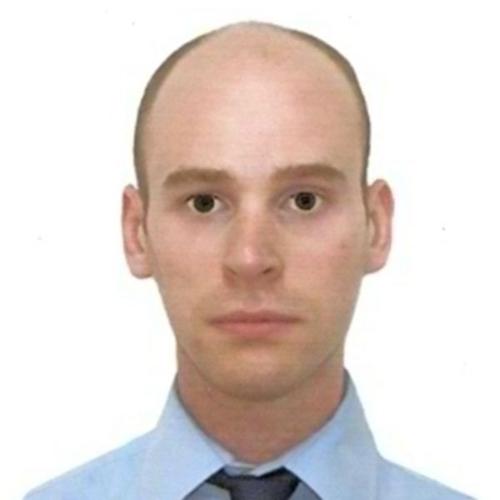
Dr. Denis Primakov (2015-16)
Dr. Denis Primakov has a BA in Middle East Studies, LBA and LL.D (PhD in Law) from the Saint Petersburg State University. His dissertation: “Features of the Jewish Legal System through a Comparative Study Jewish and Muslim Law in VII-XIII”.
Dr. Primakov served as Chief Lawyer at Transparency International – Russia, leading projects on anticorruption compliance and enforcement, taking part in writing international reports (OECD, UNODC, OCSE) and proposals to boost public integrity and transparency. He taught Jewish and Israeli Law at the High School of Economics Moscow and was a Researcher at The Institute for the Rule of Law at the European University in Saint-Petersburg. He published more than 30 academic papers and 1 book.
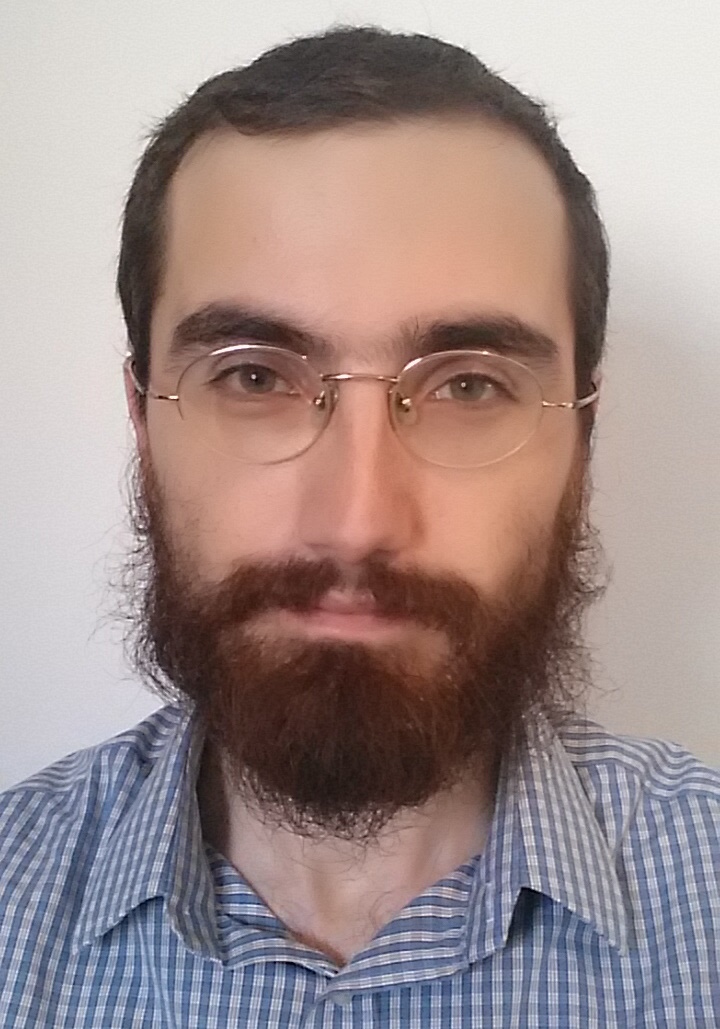 Dr. Anton Mordechai Kanevskiy (2015-16)
Dr. Anton Mordechai Kanevskiy (2015-16)
Dr. Anton Mordechai Kanevskiy has an LL.M. from the Benjamin N. Cardozo School of Law, Yeshiva University and a Ph.D from the Institute of State and Law, Russian Academy of Sciences. His thesis titled "The place of Halacha in national legal systems" was supervised by Dr. W.V. Smirnov. He is a lecturer at the Department of Jewish Studies, Lomonosov Moscow State University.
 Dr. Shmuel Cohen-Shani (2014-15)
Dr. Shmuel Cohen-Shani (2014-15)
Herzl, the founder of Zionism, graduated the Vienna University School of Law. His studies, including Roman and international law, contributed to his political and diplomatic thought about the formation of the Jewish state, and were reflected in the Basel Program: "The formation of a Jewish homeland according to the law of nations". Zionism, the national movement of the Jewish people, originated in the framework of the Grotian tradition of law and international order and the European state system of the nineteenth century. The formation of Jewish defense forces before, during, and after War World I contributed to the development of the pre-state realist international thought dealing with the use of force, but Zionist political thought was still dominated by Grotian international law. The research will be based on primary resources such as diaries, speeches, private papers, protocols of the Zionist organization, and other documents in the Central Zionist Archives, Herzl Archives, and the University of Vienna Archives.
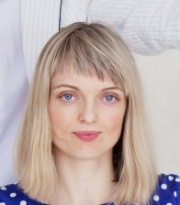
Dr. Tatiana Borisova (2014-15)
Associate Prof. Dr. Tatiana Borisova teaches history at the National Research University Higher School of Economics. She studied history and law at St-Petersburg State University, European University at St-Petersburg, Tampere University (Finland), and Leiden University (the Netherlands). Her most recent publications explore the historical aspects of codification and publication of legislation, as well as the issue of its accessibility in Imperial and Soviet Russia. Her current scholarship addresses the broader implications of coexistence of public and private interests in the development of Russian law in the last three centuries. Dr. Borisova's research at the Berg Institute will focus on the private possession of firearms and rule of law in comparative legal history perspective.
Dr. Michal Shaked (2012-13)
Dr. Shaked has an LL.B from the Hebrew University, and a Ph.D. from Tel Aviv University. She has practiced Law in the Civil Service in Jerusalem and in Tel-Aviv (1975-1984) and as a partner in a law firm in Tel-Aviv (1972-1976; 1986-2009). Dr. Shaked has taught and instructed several legal courses and published numerous legal articles. Her biography of Chief Justice Moshe Landau ("Moshe Landau, Judge") was published in 2012. Dr. Shaked's research focuses on the organization of Labor in Israel between 1920 and 2012, and in particular, on the historical identity of the General Histadrut as a labor organization; the history of freedom of organization in Israeli Labor-Law – the rhetoric and the praxis; the beginning of the current trend towards new labor organizing and new labor organizations in Israel; and the attempts of the courts to meet the challenges and to tackle the real questions and the legal problems this new movement of organization gives rise to.
